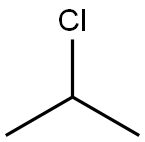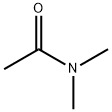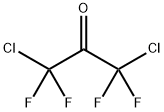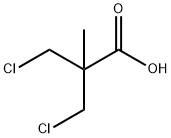1,3-Dichloropropane
Synonym(s):Trimethylene dichloride
- CAS NO.:142-28-9
- Empirical Formula: C3H6Cl2
- Molecular Weight: 112.99
- MDL number: MFCD00000999
- EINECS: 205-531-3
- SAFETY DATA SHEET (SDS)
- Update Date: 2025-09-25 17:15:13

What is 1,3-Dichloropropane?
Chemical properties
1,3-Dichloropropene occurs as a clear colourless liquid with a sweet chloroform-like odor. It is soluble in alcohol and ether, dissolves in water (0.27g/100ml). The half-life of 1,3-dichloropropene in ambient air may range from 7 to 50 hours.
The Uses of 1,3-Dichloropropane
1,3-Dichloropropane is used as an intermediate in organic synthesis. It is also used as solvent, detergent and chromatographic analysis. Further, it is used to prepare 3,7-dithia-nonanedioic acid by reacting with mercaptoacetic acid.
Definition
ChEBI: 1,3-dichloropropane is a chloroalkane that is propane in which a hydrogen from each of the terminal methyl groups has been replaced by a chlorine. It has a role as an environmental contaminant and a nematicide. It is a chloroalkane and a chlorohydrocarbon.
Preparation
1,3-Dichloropropane is obtained by the action of propylene glycol with hydrochloric acid.
1,3-Dichloropropane synthesis: A process for the preparation of 1,3-dichloropropane by reacting bis(3-hydroxypropyl)ether with hydrogen chloride, optionally in the presence of tertiary basic nitrogen compounds or other tertiary aliphatic bases as catalysts, distilling off the 1,3-dichloropropane and the water of reaction and working up the two phases.
Process for the preparation of 1,3-dichloropropane
Synthesis Reference(s)
The Journal of Organic Chemistry, 29, p. 194, 1964 DOI: 10.1021/jo01024a045
General Description
1,3-dichloropropane is a colorless watery liquid with a sweet odor. Sinks in water. Produces irritating vapor. (USCG, 1999)
Air & Water Reactions
Highly flammable.
Reactivity Profile
Halogenated aliphatic compounds, such as 1,3-Dichloropropane, are moderately or very reactive. Reactivity generally decreases with increased degree of substitution of halogen for hydrogen atoms. Low molecular weight haloalkanes are highly flammable and can react with some metals to form dangerous products. Materials in this group are incompatible with strong oxidizing and reducing agents. Also, they are incompatible with many amines, nitrides, azo/diazo compounds, alkali metals, and epoxides.
Health Hazard
INHALATION: May cause some central nervous system depression. EYES: May cause some pain and irritation. SKIN: Mild irritation.
Safety Profile
Moderately toxic by ingestion. Mutation data reported. A very dangerous fire hazard when exposed to heat or flame. When heated to decomposition it emits highly toxic fumes of Cl and phosgene. See also CHLORINATED HYDROCARBONS, ALIPHATIC; and PROPYLENE DICHLORIDE.
Properties of 1,3-Dichloropropane
| Melting point: | −99 °C(lit.) |
| Boiling point: | 120-122 °C(lit.) |
| Density | 1.19 g/mL at 25 °C(lit.) |
| vapor pressure | 24-24.265hPa at 20-25℃ |
| refractive index | n |
| Flash point: | 90 °F |
| storage temp. | Refrigerator |
| solubility | Chloroform (Slightly), Ethyl Acetate (Slightly) |
| form | Liquid |
| color | Clear colorless |
| Water Solubility | 0.8 g/L (20 ºC) |
| BRN | 505960 |
| Dielectric constant | 9.5099999999999998 |
| CAS DataBase Reference | 142-28-9(CAS DataBase Reference) |
| NIST Chemistry Reference | Propane, 1,3-dichloro-(142-28-9) |
| EPA Substance Registry System | 1,3-Dichloropropane (142-28-9) |
Safety information for 1,3-Dichloropropane
| Signal word | Warning |
| Pictogram(s) |
 Flame Flammables GHS02  Exclamation Mark Irritant GHS07 |
| GHS Hazard Statements |
H226:Flammable liquids H315:Skin corrosion/irritation H319:Serious eye damage/eye irritation H335:Specific target organ toxicity, single exposure;Respiratory tract irritation |
| Precautionary Statement Codes |
P210:Keep away from heat/sparks/open flames/hot surfaces. — No smoking. P302+P352:IF ON SKIN: wash with plenty of soap and water. P305+P351+P338:IF IN EYES: Rinse cautiously with water for several minutes. Remove contact lenses, if present and easy to do. Continuerinsing. |
Computed Descriptors for 1,3-Dichloropropane
| InChIKey | YHRUOJUYPBUZOS-UHFFFAOYSA-N |
New Products
4,4-Difluoropiperidine hydrochloride tert-butyl 9-methoxy-3-azaspiro[5.5]undecane-3-carboxylate Indole Methyl Resin N-Isopropylurea N,N-Dicyclohexylcarbodiimide(DCC) MELDRUMS ACID 5-METHYLISOXAZOLE-4-CARBOXYLIC ACID Magnessium Bis glycinate Zinc ascorbate 1-bromo-2-butyne 2-acetamidophenol 9(10H)-anthracenone Erythrosin B, 4-Piperidinopiperidine 2-((4-morpholinophenylamino) (methylthio) methylene) malononitrile 2,4-dihydroxybenzaldehyde 3-(4-morpholinophenylamino)-5-amino-1H-pyrazole-4-carbonitrile Methyl 2-methylquinoline-6-carboxylate 2,6-dichloro-4-nitropyridine 4-Bromo-2-chlorobenzonitrile 2-(benzylamino)acetic acid hydrochloride 4-(tert-Butoxycarbonylamino)but- 2-ynoic acid 3,4-dihydro-2H-benzo[b][1,4]dioxepine 1-Phenyl-1-cycloprppanecarboxylicacidRelated products of tetrahydrofuran








You may like
-
 1,3 Dichloropropane 98%View Details
1,3 Dichloropropane 98%View Details
142-28-9 -
 1,3 Dichloropropane 142-28-9 98%View Details
1,3 Dichloropropane 142-28-9 98%View Details
142-28-9 -
 1,3-Dichloropropane CAS 142-28-9View Details
1,3-Dichloropropane CAS 142-28-9View Details
142-28-9 -
 1,3-Dichloropropane CAS 142-28-9View Details
1,3-Dichloropropane CAS 142-28-9View Details
142-28-9 -
 1,3-Dichloropropane, 99% CAS 142-28-9View Details
1,3-Dichloropropane, 99% CAS 142-28-9View Details
142-28-9 -
 1,3-Dichloropropane CAS 142-28-9View Details
1,3-Dichloropropane CAS 142-28-9View Details
142-28-9 -
 1,3-Dichloropropane CAS 142-28-9View Details
1,3-Dichloropropane CAS 142-28-9View Details
142-28-9 -
 1,3-Dichloropropane CAS No.: 142-28-9View Details
1,3-Dichloropropane CAS No.: 142-28-9View Details
142-28-9
